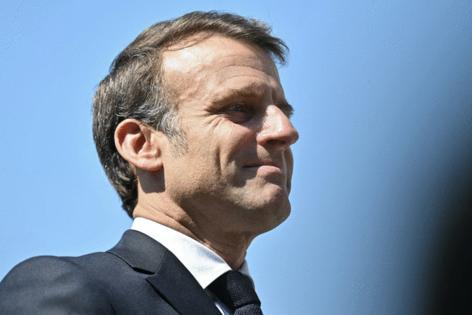Here are the leading contenders to be France's new premier
Published in News & Features
PARIS — French President Emmanuel Macron is seeking a fifth prime minister in less than two years to tackle the country’s debt problems. Here are some of the leading contenders, categorized by the general approach Macron may take in making his choice.
Rinse and repeat
The most obvious approach would be to pick another centrist in line with Macron’s core policies, just like Bayrou was. The current defense minister, 39-year-old Sebastien Lecornu, would offer that profile and was a front-runner in the last reshuffle.
Gerald Darmanin, 42, could provide a similar political signal. Like Lecornu, he hails from the center-right but has long served Macron in various ministerial posts. Labor Minister Catherine Vautrin has a comparable political background.
The problem with more of the same is that it would likely lead to the same outcome: defeat and an eventual ouster by parliament.
Turn left
Bayrou pushed through the 2025 budget by convincing moderate Socialist lawmakers to abstain and the idea of making one of them premier has become more viable since the Socialists stepped away from Jean-Luc Melenchon’s far-left group, France Unbowed, which is bent on Macron’s downfall.
Indeed, Macron himself began his political career in the Socialist government of Francois Hollande and the party’s current leader, Olivier Faure, said Sunday he would accept the prime minister job if it was offered.
But an explicit turn to the left would raise problems with the Republicans, the traditional right, who could play a pivotal role in passing or defeating budgets proposals, and preserving or evicting governments.
Turn right
Some members of the party of former president, Nicolas Sarkozy, have indicated they could work with a prime minister of the left. But Bruno Retailleau, the current leader of the party who also serves as Bayrou’s interior minister, said at the weekend it is “out of the question” for someone from the Socialist Party to be named premier.
With 49 seats out of 577 in the National Assembly, nominating Retailleau or someone else from the Republicans’ current leadership would be a big risk.
Leftist elder
If Macron wants to court the left without alienating the right, he could look for someone outside of the current partisan politics. In December, he considered Bernard Cazeneuve, 62, a former prime minister under Hollande who has distanced himself from the new generation of Socialists.
In a similar vein, Macron brought Didier Migaud, 73, into Barnier’s short-lived government. Another option is Jean-Yves Le Drian, 78, who served in the governments of both Hollande and Macron, or the current head of the state audit court, 67-year-old Pierre Moscovici.
French media have also touted finance minister, Eric Lombard, 67, who was instrumental in building bridges with Socialists to secure the 2025 budget. He offers the advantage of having worked closely with the left decades ago, but being loyal to Macron’s pro-business policy agenda.
Technocrat
If no political profile can work, Macron could try to find a prime minister seen as purely technocratic. Before appointing Barnier in September last year, French media speculated on Thierry Beaudet, the little-known head of the Economic, Social and Environmental Council.
A better known technician would be current central bank governor, Francois Villeroy de Galhau. He has regularly spoken about fiscal policy and the need to rein in the deficit with efforts that are fair and shared among all.
Nevertheless, nominating a technocrat would be an implicit admission from Macron that politics has failed.
©2025 Bloomberg L.P. Visit bloomberg.com. Distributed by Tribune Content Agency, LLC.







Comments